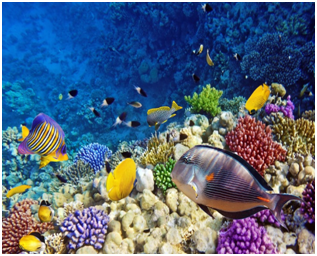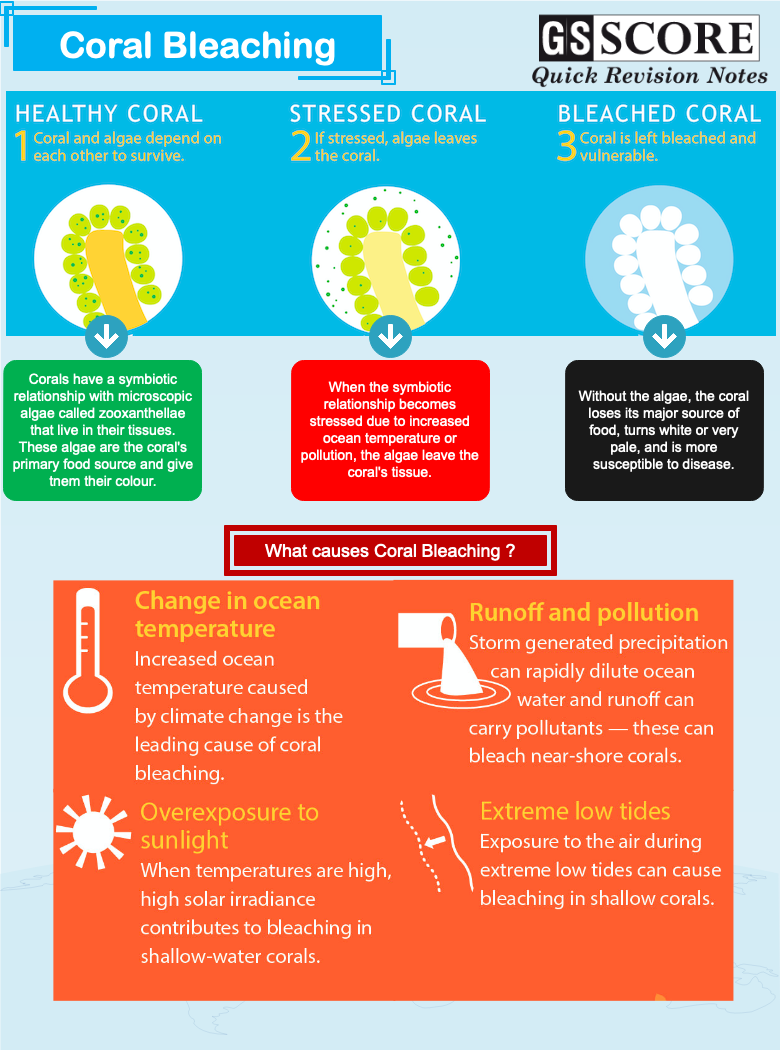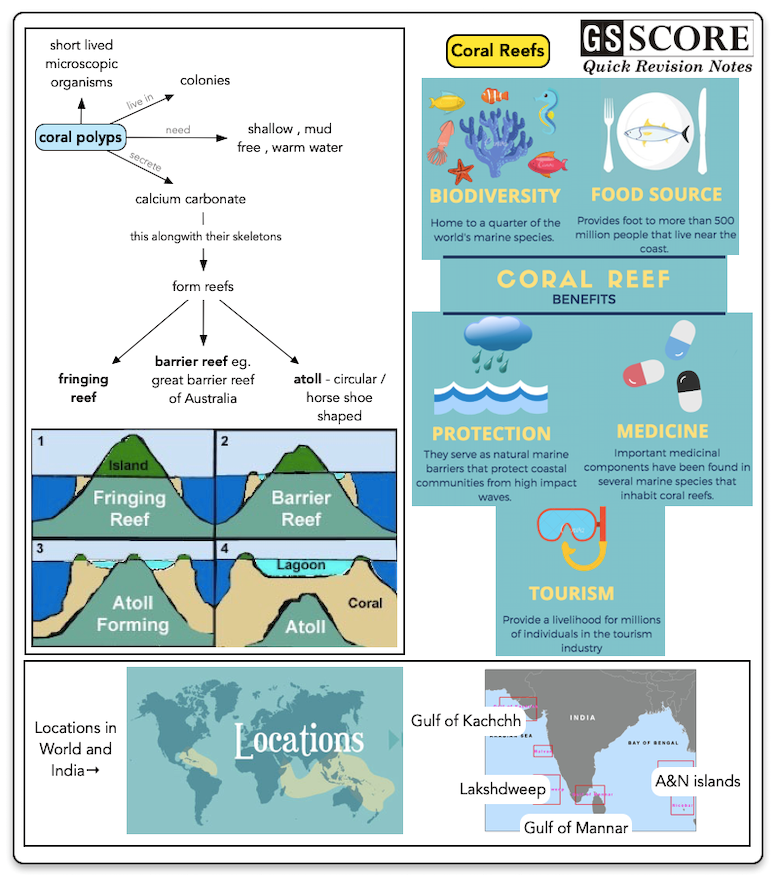

- The International Conference on Status and Protection of Coral Reefs (STAPCOR – 2018) was held at Bangaram coral Island of Lakshadweep under the theme ‘Reef for Life.’
- It was jointly organised by Department of Environment and Forest, Union Territory of Lakshadweep Administration with the technical support of Zoological Survey of India (ZSI) and in association with Ministry of Environment, Forest and Climate Change (MoEFCC), International Union for Conservation of Nature (IUCN), and Environmental Information System (ENVIS).
Context
- The International Conference on Status and Protection of Coral Reefs (STAPCOR – 2018) was held at Bangaram coral Island of Lakshadweep under the theme ‘Reef for Life.’
- It was jointly organised by Department of Environment and Forest, Union Territory of Lakshadweep Administration with the technical support of Zoological Survey of India (ZSI) and in association with Ministry of Environment, Forest and Climate Change (MoEFCC), International Union for Conservation of Nature (IUCN), and Environmental Information System (ENVIS).
- Conference is in consonance with declaration of year 2018 as 3rd decadal International year of Reefs.
About
Background:
- The effect of climate change and global warming along with El-Nino on the corals has led to heavy bleaching internationally during the year 1998. This led to the foundation of STAPCOR
- Aim of STARCOR is to have an international conference in every 10 years to review the status and progress of coral reefs all over the world.
About International Year of Reefs (IYOR):
- The first IYOR was designated in 1997 in response to the increasing threats on coral reefs and associated ecosystems.
- The hope was to increase awareness of the value of and threats to coral reefs, and to promote conservation, research and management efforts on a global scale.
- The second IYOR was 2008.
- At the 31st General Meeting (November 2016 in Paris, France), the International Coral Reef Initiative declared 2018 as the third International Year of the Reef
The goals of the 3rd IYOR – 2018 are to:
- Strengthen awareness about ecological, economic, social and cultural value of coral reefs and associated ecosystems.
- Improve understanding of the critical threats to reefs and generate both practical and innovative solutions to reduce these threats.
- Generate urgent action to develop and implement effective management strategies for conservation and sustainable use of these ecosystems.
About Coral Reefs:
- A coral reef is an underwater ecosystem characterized by reef-building corals.
- Reefs are formed of colonies of coral polyps held together by calcium carbonate.
- Most coral reefs are built from stony corals, whose polyps cluster in groups.
- Great Barrier Reef, located in Coral Sea, off the coast of Queensland in north-east Australia is largest Coral reef in the world.
- The major reef formations in India are restricted to Gulf of Mannar, Gulf of Kachchh, Andaman and Nicobar and Lakshadweep Islands.
Coral Bleaching
- Coral bleaching occurs when the symbiosis between corals and their symbiotic zooxanthellae (tiny algae) breaks down
- This results in the loss of the algae and a rapid whitening of the coral, thus the term bleaching.
- This is a stress response by the coral host that can be caused by various factors, but more severe and frequent cases are being caused by a rise in sea surface temperature (SSTs).
- If the temperature decreases, the stressed coral can recover; if it persists, the affected colony can die.
- Coral bleaching is now a global phenomenon, and events are increasing in frequency and intensity.
Benefits of Coral Reefs:
- Rainforests of the sea: Coral reefs are often called the rainforests of the sea, both due to the vast amount of species they harbor, and to the high productivity they yield.
- Reefs provide spawning, nursery, refuge and feeding areas for a large variety of organisms, including sponges, cnidarians, worms, crustaceans
- Reef structures play an important role as natural breakwaters, which minimize wave impacts from storms such as cyclones, hurricanes or typhoons.
- Habitat: Home to over 1 million diverse aquatic species, including thousands of fish species.
- Income: Coral reefs and related ecosystems have a global estimated value of ‘$2.7 trillion per year, or 2.2% of all global ecosystem service values’, this includes tourism and food.
- Coastal protection: coral reefs reduce shoreline erosion by absorbing energy from the waves: they can protect coastal housing, agricultural land and beaches. The global net benefit of coastal protection by reefs is an estimated $9 billion per year.
- Medicine: Reefs are home to species that contain pharmaceutical compounds that have potential for treatments for some of the world’s most prevalent and dangerous illnesses and diseases.

Learning Aid





